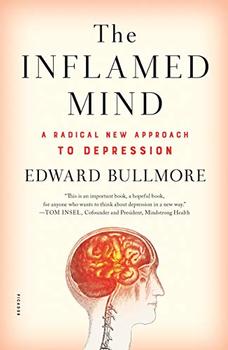Summary | Excerpt | Reviews | Beyond the book | Read-Alikes | Genres & Themes | Author Bio

Serendipity in Modern Medical Breakthroughs
by Morton Meyers M.D.A fascinating, entertaining, and highly accessible look at the surprising role serendipity played in some of the most important medical discoveries in the 20th century.
What do penicillin, chemotherapy drugs, X-rays, Valium, the Pap smear, and Viagra have in common? They were each discovered accidentally, stumbled upon in the search for something else. In the 1990s, Pfizer had high hopes for a new drug that would boost blood flow to the heart. As they conducted trials on angina sufferers, researchers noted a startling effect: while the drug did not affect blood flow to the heart, it did affect blood flow elsewhere! Now over 6 million American men have taken Viagra.
Winston Churchill once said, “Men occasionally stumble across the truth, but most of them pick themselves up and hurry off as if nothing has happened.” Within the scientific community, a certain stigma is attached to chance discovery because it is wrongly seen as pure luck. Happy accidents happen every day, but it takes intelligence, insight, and creativity to recognize a “Eureka, I found what I wasn’t looking for!” moment and know what to do next.
In discussing medical breakthroughs, Morton Meyers makes a cogent, highly engaging argument for a more creative, rather than purely linear, approach to science. It may just save our lives!
Happy Accidents is not only for the medical specialists among us - far from it. Morton Meyers's style is totally accessible to the layman and very readable, filled with anecdotes and enhanced by the occasional illustration; not only providing an enlightening read but leaving the reader with a wealth of bite-sized "did you know" facts to share on any occasion when the subject of health and medicine comes up, which tends to be an increasingly popular topic as we get inexorably closer to shuffling off our mortal coil!..continued
Full Review
(558 words)
This review is available to non-members for a limited time. For full access,
become a member today.
(Reviewed by BookBrowse Review Team).
Did you know?
The word 'serendipity'
was coined by Horace Walpole in
the 1740s after reading the
fable The Three Princes of
Serendip (set in the land of
Serendip, now known as Sri
Lanka). Walpole also coined the
misnomer 'malaria' which
derives from the Italian mal
aria (bad air).
Sulfanilamide was
produced as an unwanted
byproduct of the German dye
industry for years before an
accidental discovery showed it
to be a very effective
antibiotic. The researcher who
...
This "beyond the book" feature is available to non-members for a limited time. Join today for full access.

If you liked Happy Accidents, try these:

by Marty Makary
Published 2021
One in five Americans now has medical debt in collections and rising health care costs today threaten every small business in America. Dr. Makary, one of the nation's leading health care experts, travels across America and details why health care has become a bubble.

by Edward Bullmore
Published 2019
Worldwide, depression will be the single biggest cause of disability in the next twenty years. But treatment for it has not changed much in the last three decades. In the world of psychiatry, time has apparently stood still...until now with Edward Bullmore's The Inflamed Mind: A Radical New Approach to Depression.
It was one of the worst speeches I ever heard ... when a simple apology was all that was required.
Click Here to find out who said this, as well as discovering other famous literary quotes!